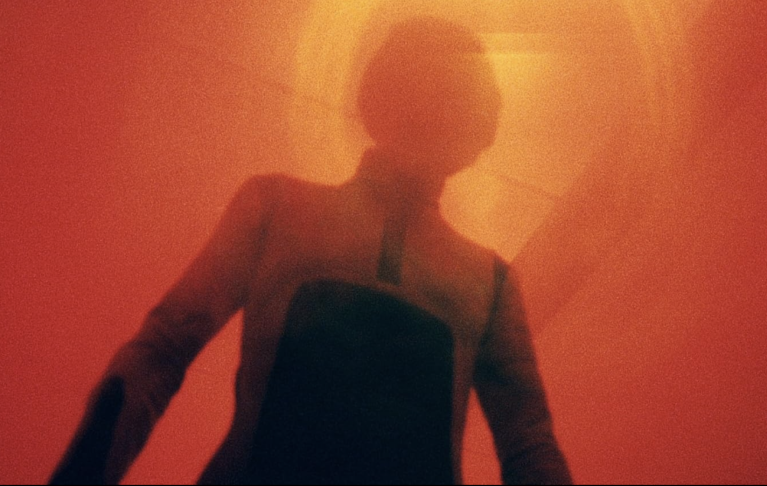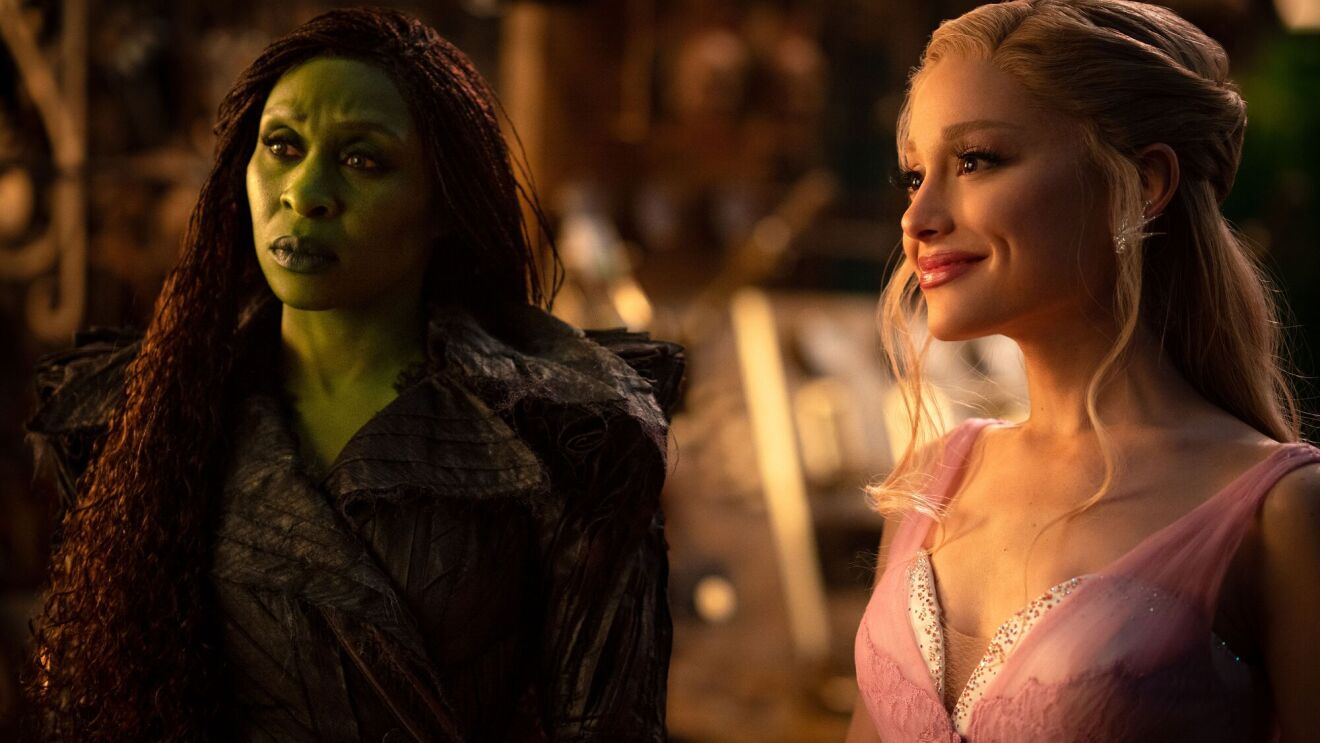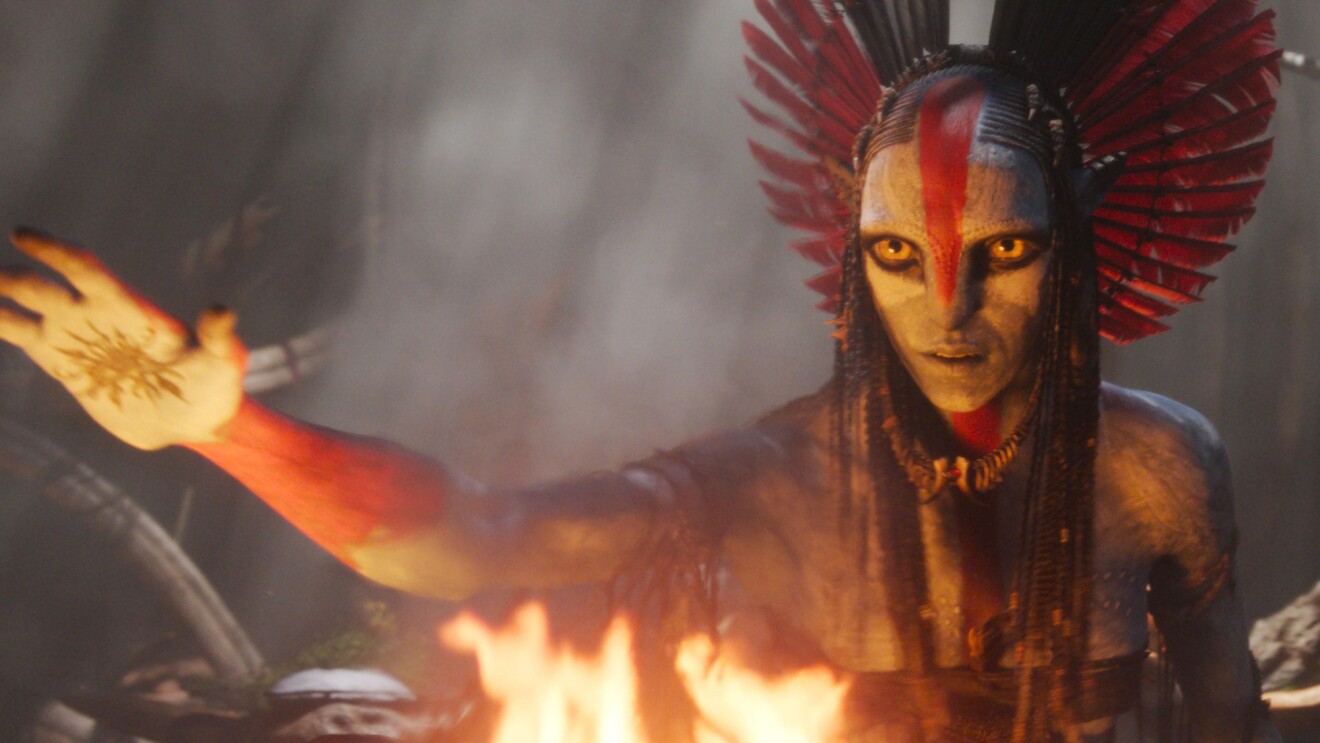Check out these five terrifying films available to watch, rent, or buy on Prime Video.
Page overview
'Beyond the Black Rainbow'

Part Regan Era fever dream, part New Age nightmare, Panos Cosmatos' Beyond the Black Rainbow is a mind-bending, psychedelic horror show for the ages.
Set in a mysterious medical facility, Rainbow starts off as a THX 1138-indebted trip, but gradually morphs into something that's both tangibly terrifying and slightly unintelligible. The doctor overseeing the facility is obsessed with one patient—a young girl with impressive psychic abilities—for reasons that are darker than you can imagine. As the girl attempts to escape, reality begins to blur, demons are unleashed, and synthesizers are blasted at maximum volume.
If it all sounds a bit like Stranger Things, well, you're not the only one to notice (for the record, Rainbow came out a full six years before the Netflix hit). And if you liked Rainbow, but wished it featured an unhinged Nic Cage wielding a massive battle axe called "The Beast," might I recommend Cosmatos' next film, Mandy?

If the image above creeps you out, then Skinamarink probably isn't for you. If you enjoy jump scares, gore, a clearly defined plot, or really even acting in general, then it definitely isn't for you.
Kyle Edward Ball's feature debut eschews most conventions of horror (and film, for that matter) in favor of a constant, claustrophobic atmosphere that will leave you curled up and crying. Shot in excruciatingly long, slightly out of focus single takes, with minimal lighting and even less dialogue, almost all of the story (as it were) takes place just off camera, or just within earshot, which makes it one of the most surreal sorta-films in recent memory. Yet, those stylistic choices also make it feel terrifyingly real, which is the secret to Skinamarink's success. After all, what's scarier than catching a glimpse of something out of the corner of your eye, or hearing a strange sound late at night? Skinamarink is a horror experience unlike any other, and regardless of whether you love it or hate it, you most certainly won't forget it.

The first in director Robert Eggers' historically accurate, harrowing features (followed by 2019's The Lighthouse and 2022's The Northman), The Witch tells the story of a 17th century family that is banished to the wilderness, where they find themselves at the mercy of dark forces gathering in the forest. Eggers used actual historic documents to inspire the dialogue in the film, and shot it only with natural light, and that attention to detail, coupled with the film's oppressive themes—religious extremism, sexual awakening, the brutality of nature—imbues The Witch with a foreboding sense dread, a slowly building tension that gives way to a bloody climax. You'll never look at goats the same way.

From the opening scene—a terrified girl runs from a house on a sleepy suburban street, pursued by a tormentor only she can see—you know It Follows is operating on a different level.
It never really lets up, either, striking an unsettling balance between John Hughes and John Carpenter. Director David Robert Mitchell seems to delight in that eerie dissonance; he fills the film with deliberately anachronistic touches, leaving the audience unmoored, and while the titular It is never really explained (it's some kind of unstoppable, shape-shifting ghoul that's spread through sexual contact), it's always hunting—and it could be anywhere—so you'll often find yourself studying background characters in scenes, while also attempting to follow the actors in the foreground. It's a dizzying, downright scary, sorta-nostalgic trip through ... uh, I'm not exactly sure when. Or where.

Unrelenting from the first frame, Ari Aster's Hereditary sets a new bar for slow-burn, heady horror, a dark exploration of grief, trauma, and the occult that burrows beneath your skin and just keeps right on digging. A very persistent demon takes hold of a family still reeling from loss (Toni Collette is positively otherworldly as the anguished matriarch) and gradually tears them asunder. With its ethereal visuals, pulsing score, fraught performances, and some of the most genuinely shocking scenes in recent memory, Hereditary has rightfully been hailed as a new horror classic, the muted cousin to Aster's other horror hit, the terrifying-in-Technicolor Midsommar. You don't watch it so much as you endure it, which is about the highest compliment you can give a horror film.










